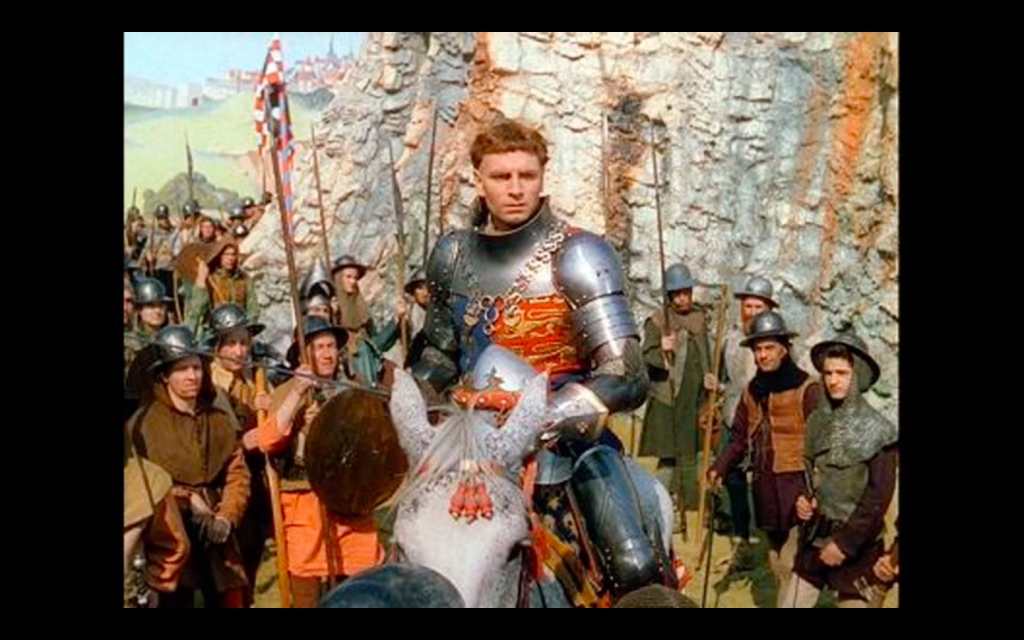
Please Follow us on Gab, Minds, Telegram, Rumble, Gab TV, GETTR
On St. Crispin’s Day, October 25, 1415, in the north of France, the Battle of Agincourt looms. King Henry V’s army, beleaguered due to previous combat and disease, face a French force six times its size. Faced with discouraging odds, Henry positions his troops brilliantly, takes advantage of favorable terrain, and uses his long bow archers to devastate a cumbersome foe. His victory sets the stage for Shakespeare’s St. Crispin’s Day Speech in the play Henry V.
Prior to battle the situation appears hopeless to the English army. Henry’s men kiss the ground on which they stand, for surely this will be their final resting place before the day is done. Knowing his life and the destiny of England depend on his men’s courage and cohesiveness, Henry rallies their spirits by delivering the “St. Crispin’s Day Speech.” He reminds his cousin Westmoreland that the honor earned today will be remembered forever. Despite being outnumbered, Henry desires no reinforcements or cowards among his troops. Honor is a zero sum game - a finite quantity that cannot be shared with those who are unworthy. The upcoming battle is a cherished opportunity, and those absent will envy the participants and curse themselves for not being a part of history.
“We few, we happy few, we band of brothers; For he today that sheds his blood with me Will be my brother; be he ne’er so vile, The day shall gentle his condition.”
In Shakespeare’s time the word “vile” also meant someone of a low social class. Social barriers and petty prejudices abounded in fifteenth century England. For Henry to accentuate these differences among his troops or question their integrity would have ensured a certain defeat to be even more certain. Dumas summarized the brotherhood ethos in The Three Musketeers, “All for one and one for all, united we stand divided we fall.”
President Kennedy observed, “No one has been barred on account of his race from fighting or dying for America; there are no white or colored signs on the foxholes or graveyards of battle.”
From the time of the Persians and Greeks, living by codes of conduct and instilling a sense of elitism and camaraderie among the ranks provided the foundation on which soldiers risked their lives to protect the country they serve. In the foxholes of today an insidious enemy, no less dangerous than the Soviet political officer holding a pistol to the back of the head of unwilling soldier, preaches hate and racism. Idealogical generals and admirals sow the seeds of distrust by promoting Critical Race Theory. Those who object bear the brunt of ridicule and are condemned for failing to profess doctrines that are steeped in Marxism.
On this St. Crispin’s Day we salute the men and women serving our country and pray they are able to withstand the withering attacks from the enemy from within. As Orwell put it, they are the rough ones who insure that, “People sleep peacefully in their beds at night only because rough men (and women) stand ready to do violence on their behalf.”
Subscribe to our evening newsletter to stay informed during these challenging times!!